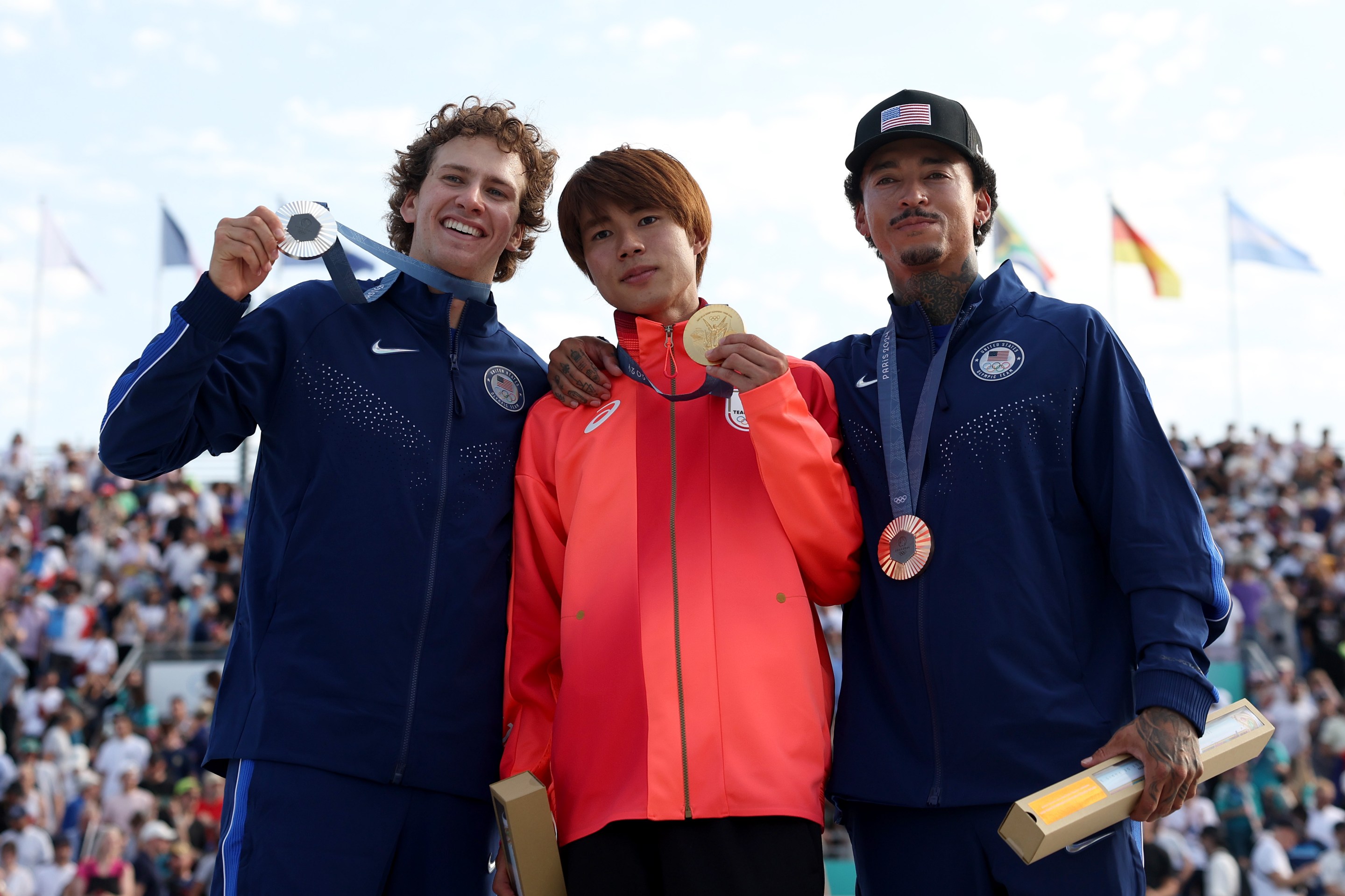Skateboarding returns to the Olympic stage in Paris, and despite how uncomfortable and ill-fitting the suit of respectability appears on it, our punkest activity is showing it belongs even in these stuffy ranks. Skateboarding, particularly street skating, feeds off chaotic energy and momentum it can't get in an environment as sterile and formal as the Olympics. Without a bunch of skaters around the park or in the audience—and with the announcing team of Todd Harris and Ryan Sheckler playing a muted version of Dodgeball's Cotton McKnight and Pepper Brooks—the sport's ideal atmosphere and color just aren't there. But the skaters are meeting the moment nonetheless.
After the disappointment of his last Olympics, where as the most famous skater of the U.S. bunch he failed to medal, the American skater to watch again was Nyjah Huston, clearly on a mission to maximize his potential. After strong showings in the preliminaries, he, along with last year's bronze medalist Jagger Eaton, started the finals off extremely focused and locked in, raking in high scores in both runs before nailing a couple of wicked tricks. Eaton impressively seemed to be casually texting before his first two tricks. I hope he was talking to someone cool, at least, or maybe finding the right Travis Scott song to listen to or whatever it is people under 30 do now.
How competition tends to work is: The eight finalists take part in two speed runs in which they freestyle as many complex and interesting completed tricks as possible in the allotted time, but with probably way too much penalty assigned to flopping (that's some of the best stuff). The highest score from a skater's two runs stands; then they have five chances to land their best tricks, with the two highest of these scores being selected in the composite. So to have any chance at success, a skater needs to at least land two tricks.
Huston nailed two highly difficult ones, including a switch heelflip frontside tailslide and a wobbly but impressive nollie heelflip, but failed to land more impressive tricks on his last three attempts, and thus missed out on any opportunity to improve his final score even just a little bit. This turned out to make the difference. The 23-year-old Eaton would end up with one more big trick, a nollie 270 switch backside noseblunt, to get to silver, leaving Huston with the bronze. This could more than likely be the 29-year-old Huston's last chance to make the Olympic team, but if that's the case at least he left with something.
Japan led the way, as it did in the Tokyo Games, in both the men's and the women's street action. In the men's, Yuto Horigome landed a dagger trick, a nollie 270 noseblunt, to score his second gold medal in a row. While the U.S. had an improved showing in the men's competition this year, Japan was all over it for the women's, placing both gold and silver with, respectively, 14-year-old phenom Coco Yoshizawa and 15-year-old phenom Liz Akama. (Don't you just feel so unaccomplished in comparison.) Akama pulled off a perfect and highly difficult 270 switch frontside boardslide, and Yoshizawa came in the clutch with perfect execution, hitting a big spin flip frontside boardslide that got her the biggest score of the day, and definitely won the respect of Tony Hawk.
Brazil's 16-year-old star Rayssa Leal, the silver medalist in Tokyo, nabbed the bronze this time around, and stood out as the most stylistically cool skater on the podium, with her baggy jeans and her Christ the Redeemer pose after every trick. And with Brazil packing out the court heavy, she had the best crowd environment. The U.S.'s Poe Pinson, despite not placing, made an impression with her late-stage plays, fully giving her best even when it was clear she couldn't make up enough to place—just a pure skater at heart with tenacity and those giant headphones on her head. Like Huston in Tokyo, she and the other U.S. women missed a chance to prove themselves in Paris, but have a future Olympics to look forward to. Skating will be there.






